For years there has been a subtle feeling throughout the tech industry that smart phones would eventually overtake personal computer sales. Well, things have reached a climax, because the inevitable happened — smart phones have outsold PCs. And it’s a pretty big deal.
For the first time ever, smart phones have outsold PCs in the fourth quarter of 2010 — mobile venders shipped 100.9 million smart phones (up 87.2% from ’09) while PC vendors shipped 92.075 million personal computers (up 2.7% from ’09) throughout the quarter. It’s a landmark event that will surely go down in the history books. This is the time when the idea of computing will change forever.
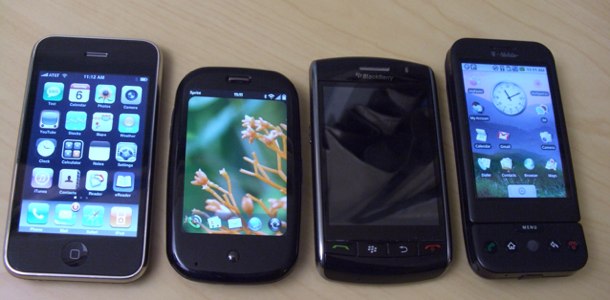
Things in the mobile computing industry move fast, and if you can’t keep up (talking to you, Microsoft, Palm, Nokia, and Research In Motion), you are going to get left behind. The PC industry is learning this the hard way.
Although it might disappoint Apple fans, Android has been the x-factor of this whole ordeal:
“Android continues to gain by leaps and bounds, helping to drive the smartphone market,” said Ramon Llamas, senior research analyst with IDC’s Mobile Phone Technology and Trends team. “It has become the cornerstone of multiple vendors’ smartphone strategies, and has quickly become a challenger to market leader Symbian. Although Symbian has the backing of market leader Nokia, Android has multiple vendors, including HTC, LG Electronics, Motorola, Samsung and a growing list of companies deploying Android on their devices.”
But what is truly impressive is how fast we’ve got here. Mary Meeker, former Morgan Stanley analyst, had previously predicted that this exchange of control would occur in 2012. But she was wrong, as were many others.
The Decline of PCs
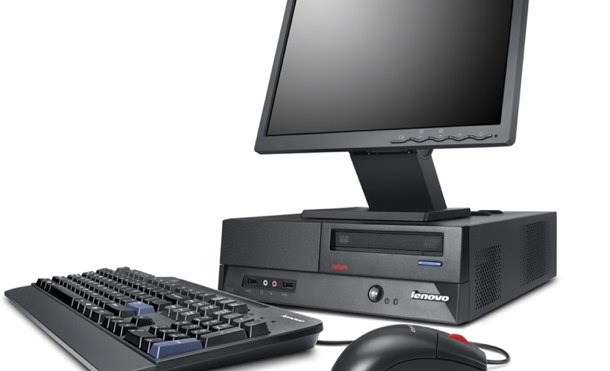
The sign that things were getting serious about mobile computing was the development of the netbook computer. ASUS was the biggest proponent of the netbook, with the Asus EEE PC being the first device to go mainstream (correct me if I’m wrong). It was supposed to be the answer to the smart phone.
Things were looking good at first. Netbook sales showed promise during holiday shopping seasons, especially when these devices reached a sub-$300 price. But the success was only temporary.
Interest in the netbook computers soon waned. These netbook computers were cheap and slow, and they were struggling to keep up with the demands — ever try playing an HD video on YouTube on a netbook? Better value could be had with more traditional computers and laptops. But once the economy started suffering, it seemed like nothing could help restore interest. But as bad as it was, these guys didn’t know what Steve Jobs and Apple had in store. It was about to make their jobs far worse.
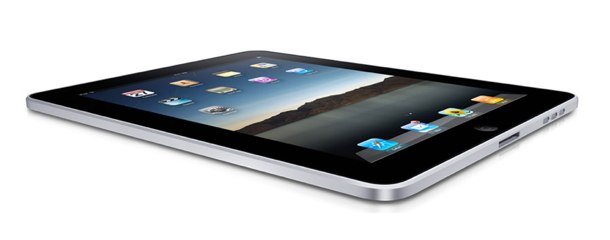
Apple completely demolished the hopes and dreams of most PC manufacturers with the announcement of the iPad. Apple’s device represented a shift in personal computing. The company, along with the iPad, made the statement that personal computing can be portable and can be without the keyboard and mouse. And people have obviously bought into it.
Now, every PC manufacturer — other than Apple — is quick to blame the iPad for their declining sales. But it didn’t start with the iPad. It began with the iPhone and the always-on mentality of today’s consumers.
No Turning Back
We now live in a world where it is the norm to check your Twitter constantly, update your Facebook account regularly, and text people frequently. The ability to do this requires that you have a personal computing device with you at all time. Of course, hauling around your laptop isn’t exactly the most pleasurable thing to do, so there was another solution.
Enter the iPhone. It was revolutionary in that it gave people a way to access third-party content easily and without hassle. It also gave developers a way to create applications for those phones easily, and it all compounded this need-to-know state of being that we currently experience. This device really set everything in motion.
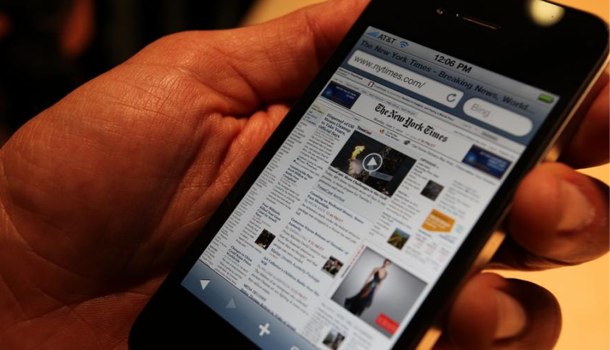
Other platforms followed: Android, webOS, Blackberry, Windows Phone 7, MeeGo, and more. They are happy to oblige consumers’ demands, with some doing a better job than others. But now it seems as if the even mentioning a Windows or Mac computer is just… well… old school. Few people really expect huge developments from the traditional PC platforms, and for good reason, too; personal computers no longer meet the needs of consumers.
In fact, I know several friends who have forgone the purchase of desktop/notebook computers and Internet connections — all they use are their smart phones for entertainment, communication, and work-related tasks. A few years ago that would have been crazy.
But now we all can possess the power of a computer in our hands — some of which are more powerful than traditional PCs of only a few years ago — and people should realize that we are currently living the future we always dreamed about. And we are living in some of the greatest times of technological history; in fact, we are the lucky few who are making history by being some of the first people to use these gizmos. It is something truly worth appreciating.
Future Impacts
So where do we go from here? Well, we keep going. We will be more mobile than ever before, and the traditional PC market will continue to decline heavily of the next few years. Those companies that keep their eggs in selling desktop and notebook computers will be the ones to fail first — companies like Compaq, Samsung, Sony, and more will be the first to get left behind. Apple, on the other hand, will continue to keep the ball rolling. The iPad 2 is allegedly in production and the iPad 3 is already being discussed.
Microsoft will be the biggest loser of the bunch at this rate. It is already loosing support from its third-party manufacturers — most of them have decided that mobile is the future and are investing in creating their own mobile operating systems, particularly for tablet computers. Research In Motion (with PlayBook) HP (with webOS) and other manufacturers (with Android), are all forging ahead, and none of these companies — as John Gruber points out — has bothered with Microsoft’s technologies.
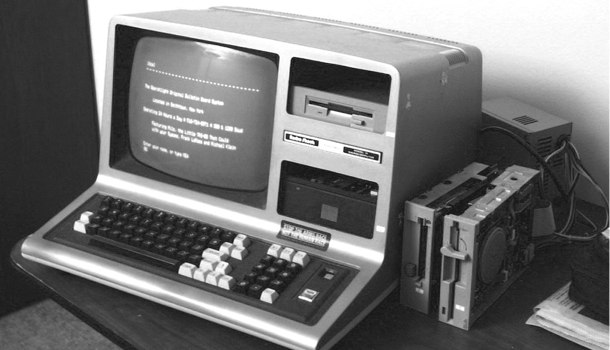
On the flip side, tablet computers and smart phones will be on the rise. Apple seems to be in prime condition to continue to lead the mobile computing revolution, as they have done for years. Other manufacturers will follow suit. But one thing is for sure: the mobile computing space is probably going to get crowded really fast, and not everyone is going to make it out alive.
In the end, it will be exciting to keep an eye on the next year or two to see how this all pans out. But until then, enjoy your smart phone! We are only beginning to see what power these devices can possess. And it is sure to get even more interesting very soon.
